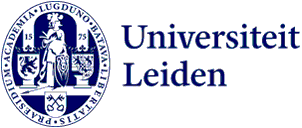Conference
FOR POSTERITY: Preservation and accessibility of Ethnographic Film collections in The Netherlands
- Metje Postma
- Mark Westmoreland
- Beate Engelbrecht
- Rossella Ragazzi
- Joshka Wessels
- Sanderien Verstappen
- Kristina Petrasova
- Rixt Jonkmans
- Cunera Buijs
- Ildikó Plájás
- Wendy van Wilgenburg
- Laura Ogden
- Eddy Appels
- Federico De Musso
- Date
- Thursday 23 March 2023
- Time
- Address
-
Pieter de la Court
Wassenaarseweg 52
2333 AK Leiden - Room
- SA.41
The symposium
The symposium aims to reassess ethnographic film as genre and as source, and intends to establish a relationship between existing collections and their purposes and approaches within ethnographic filmmaking, including their value and uses for research and for preserving intangible social and cultural heritages.
With this symposium we will also celebrate Metje Postma's achievements and legacy as it is her farewell as a lecturer at the institute.
Please register by 20th of March. Seats are limited. The symposium can also be followed online. Online participants will receive an email with the link a couple of days prior to the event.
RSVPThe value of ethnographic films
For a long time, ethnographic films have been seen as documents depicting the changing ways of life of communities around the world. Gradually, the aims and approaches of this genre of documentary film became more diverse. After 125 years of cinema, there are many thousands of films spread over archives, museums and private collections that are hardly accessible to the general public, and on media that can hardly be played anymore. This Symposium brings together various speakers to investigate the value of ethnographic films and film collections and to debate whether and how these films can be used, better preserved and made accessible.
Documentations of different aspects of social lives
As researchers/anthropologists we have always seen our films as outcomes of ethnographic research to gain insight in and understanding of diverse ways of life. As such they can also be seen as documentations of different aspects of social lives situated in specific places and times. We therefore propose that these films are intergral part of sources that can contribute to the preservation of the intangible cultural and social heritages of the communities they depict. Yet there are also voices in these communities that were recorded that do not see any value in them and oppose these products of mostly western filmmakers as imperialist visions of their societies. These are important discussions to engage with when deciding about if and how ethnographic film should be preserved including those with regards to ethical considerations and legal regulations.
Programme
| 13:00 | Opening by Mark Westmoreland
(Leiden University, director of the Visual Ethnography specialisation) |
| 13:15 | Introduction by Metje Postma |
| 13:30 |
Beate Engelbrecht (International coordinator of GIEFF & Director of Anthrovision) |
| 13:45 | Rossella Ragazzi (Tromsö University) |
| 14:00 | Joshka Wessels (Malmö University) |
| 14:15 | Sanderien Verstappen (University of Vienna) |
| 14:30 | Break |
| 15:00 | Panel discussion 1
Practices of conservation: the possibilities for conservation and of making existing ethnographic film collections accessible.
With Kristina Petrasova (Beeld & Geluid), Rixt Jonkmans (Eye Filmmuseum), Cunera Buijs (Museum of World Cultures). Moderated by Eddy Appels (SAVAN/Cineblend) |
| 16:00 |
Panel discussion 2
Discussion with former students of the Visual Ethnography Specialisation at Leiden University: Ildikó Plájás (University of Amsterdam), Wendy van Wilgenburg (Ambacht in Beeld Festival), Sanderien Verstappen (University of Vienna), Joshka Wessels (Malmö University), Laura Ogden (Maastricht University). Moderated by: Federico De Musso (Leiden University). |
| 17:00 | Drinks & Celebration |

